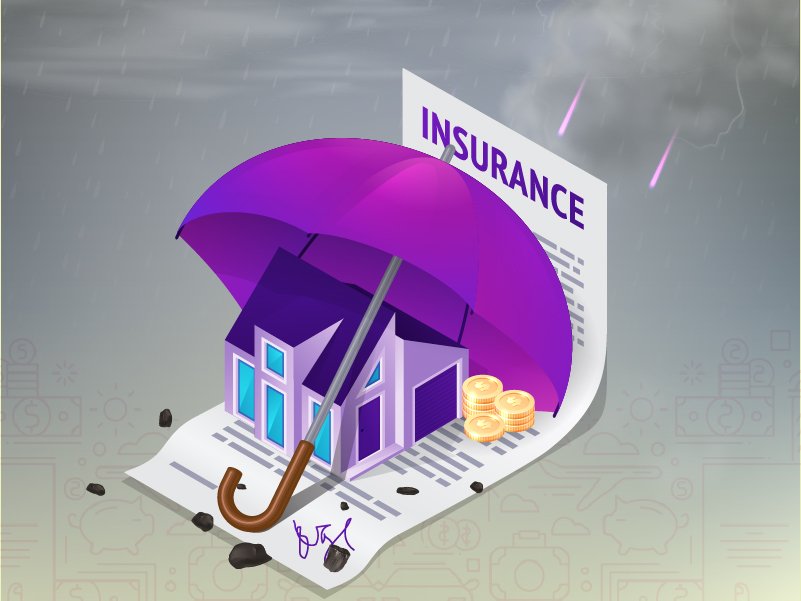Introduction to Condo Homeowners Insurance
Condo homeowners insurance, often referred to as HO6 insurance, is a specialized form of coverage tailored specifically for condominium owners. Unlike traditional homeowner’s insurance, which covers standalone properties, Florida condo homeowners insurance addresses the unique needs of condo living. This type of insurance is essential for Florida residents who own a unit within a larger building or complex, as it provides protection for personal belongings, the interior structure of the unit, and personal liability claims.
The necessity of condo insurance arises from the shared nature of condominium ownership. In a typical condo setting, residents own their individual units but share common areas such as lobbies, roofs, and swimming pools with other residents. The condo association generally carries a master policy that covers the building and common spaces. However, this master policy often excludes coverage for the interior of individual units, making it crucial for owners to invest in their own policy. Florida condo homeowners insurance fills that gap, ensuring that owners have the necessary protection against risks such as theft, fire, or water damage.
A critical distinction between condo insurance and other types of home insurance is how liability is addressed. Condo owners are responsible for their unit and any personal liability claims that arise within their space. Therefore, insurance coverage for personal liability becomes fundamental in safeguarding condo owners against potential lawsuits or accidents that may occur in their units. In essence, obtaining proper coverage not only protects personal property but also mitigates financial risks associated with living in a shared residential environment.
By understanding the specific requirements of Florida condo homeowners insurance, condo owners can make informed choices about their coverage, ensuring that they are protected in all aspects of condominium living.
Why Florida Condo Owners Need Specialized Insurance
Florida’s unique real estate market presents distinct challenges for condo owners, requiring specialized insurance coverage. Among the foremost concerns is the state’s susceptibility to natural disasters, particularly hurricanes. Florida experiences an average of numerous tropical storms each year, which pose significant risks to property and residents alike. Condo owners face the possibility of extensive damage from high winds, flooding, and storm surges, prompting a need for robust florida condo homeowners insurance tailored to address these threats.
Additionally, the state’s high humidity levels can lead to other concerns that affect condo owners. The damp environment fosters mold growth, which can compromise the structural integrity of properties and create health risks for residents. Standard homeowners insurance policies often have limitations regarding mold damage, emphasizing the importance of selecting a florida condo homeowners insurance policy that provides sufficient coverage for these specific risks. A specialized insurance solution can help condo owners stay protected against the unforeseen consequences of Florida’s climate.
Moreover, the density of condominium living in Florida introduces unique vulnerabilities, such as shared walls and communal areas that require consideration in insurance policies. Damage to common areas or other units due to a fire or water leak from one condo can lead to complex liability issues. Therefore, condo owners must seek tailored coverage that not only protects their personal property but also mitigates liabilities that may arise from interactions with neighboring units and shared spaces.
In light of these considerations, condo owners in Florida must recognize the importance of investing in specialized florida condo homeowners insurance. This proactive approach not only ensures adequate protection against the multifaceted risks presented by the state’s environment and living conditions but also provides peace of mind for homeowners navigating the intricacies of Florida’s real estate market.
What Does Condo Homeowners Insurance Cover?
Condo homeowners insurance is tailored to protect the unique needs of condominium owners. Typically, these policies cover several essential areas, ensuring that residents are safeguarded against various risks associated with condo living. One of the primary components of this insurance is personal property protection, which covers the contents within the unit, such as furniture, electronics, and personal belongings. In the event of theft, fire, or other disasters, owners can file claims to recover the value of their lost or damaged items.
Another critical aspect of condo homeowners insurance is liability coverage. This feature protects homeowners from financial loss if someone is injured while on their property. For instance, if a guest trips and falls within the unit, liability coverage can help cover medical expenses and any potential legal fees that may arise from lawsuits. It is essential for Florida condo owners to consider the extent of liability coverage they require, especially in areas with high pedestrian traffic or where guests frequently visit.
Additionally, condo homeowners insurance typically offers structural coverage for the interior of the unit. This coverage protects against damages to fixtures, such as cabinets and countertops, that are not covered by the condominium association’s master policy. Moreover, many insurance providers allow homeowners to add valuable enhancements such as loss assessment coverage. This add-on is particularly beneficial, as it protects homeowners against unexpected charges, such as special assessments levied by the condo association for major repairs or improvements.
Lastly, coverage for additional living expenses can also be included, which helps homeowners afford temporary housing and related costs in the event their condo becomes uninhabitable due to a covered disaster. Understanding what Florida condo homeowners insurance encompasses is vital for ensuring adequate protection and peace of mind. This comprehensive coverage not only enhances the safety of the owner’s personal property but also mitigates financial risks associated with living in a condominium.
What Isn’t Covered by Condo Homeowners Insurance?
Condo homeowners insurance, while providing essential coverage for many risks, also has notable exclusions that owners must understand to avoid gaps in their protection. A primary exclusion is damage caused by natural disasters such as floods and earthquakes. Most standard condo insurance policies do not cover these disasters, which can be particularly relevant in Florida, a state prone to hurricanes and tropical storms. Homeowners are often encouraged to purchase separate flood insurance policies to safeguard their property from flood-related damages.
Another common exclusion pertains to maintenance issues. Most homeowners insurance policies do not cover damage resulting from neglect or lack of proper maintenance of the unit. For instance, if a leaky pipe damages your flooring but the leak was a result of years of disrepair, your insurance may not cover the costs. It is crucial for condo owners to stay on top of routine maintenance to mitigate risks that insurance policies might not address.
Additionally, personal liability coverage in condo homeowners insurance can have limitations. While these policies often include liability protection, certain circumstances, such as injuries occurring in common areas or damages related to specific activities (like business operations from within the condo), may not be covered. Understanding these limitations is vital for condo owners in Florida who may need to seek additional liability protection through separate policies or riders.
To ensure adequate protection, it’s advisable for homeowners to carefully review their policy details and consider supplementary coverage where necessary. Knowledge of what isn’t covered by condo homeowners insurance can significantly assist residents in making informed decisions about additional policies, thereby enhancing their overall safety and security.
How to Choose the Right Condo Insurance Policy
Selecting the appropriate condo insurance policy is crucial for protecting your investment and ensuring your peace of mind. To begin this process, it is essential to evaluate your personal needs and the specific coverage areas that are most relevant to you. Consider factors such as the value of your condo, the possessions you own, and your lifestyle. A thorough assessment of your requirements will help you identify the type of coverage that is necessary and appropriate.
Understanding policy terms is another vital step in making an informed decision. Many policies have specific exclusions and varying limits on coverage. For example, some policies may cover personal property extensively, while others may not adequately cover liability issues. Familiarize yourself with terminology such as replacement cost, actual cash value, and additional living expenses, as these will directly impact your coverage. Being well-versed in these terms can prevent unpleasant surprises during the claims process.
Once you have a grasp of your needs and the relevant policy terms, comparing quotes from different insurers becomes paramount. It is prudent to gather multiple quotes for your florida condo homeowners insurance to evaluate varying rates, coverage options, and premiums. Online tools and resources can significantly streamline this process, enabling you to easily contrast the nuances of each policy offered. Additionally, reaching out to local agents can provide personalized insights that online tools might not capture.
Finally, fostering relationships with insurance representatives can lead to better guidance tailored to your unique situation. Agents can offer recommendations based on your requirements and may provide discounts or specific options that align with your budget. Taking the time to engage in this comparison process ultimately leads to a more informed choice in condominium insurance that caters to your needs.
The Role of Your Condo Association in Insurance
The relationship between a condo association’s insurance policy and individual homeowner policies is crucial for all stakeholders. Typically, a condo association takes out a master insurance policy that covers the common areas and structural components of the building. This policy is designed to protect the association and its members from various risks such as fire, vandalism, or natural disasters. As a homeowner, understanding the scope of this master policy is essential, as it directly affects your coverage and financial responsibilities.
While the master insurance policy serves to protect the collective interests of all residents, it is important to recognize that it does not cover everything. Individual Florida condo homeowners insurance policies are still necessary to ensure that personal property and specific liabilities are adequately covered. These personal policies often address interior damages, personal belongings, and any liability claims that might arise from incidents occurring within a unit. Hence, understanding the distinctions between what’s covered by the master policy and your own policy can greatly influence your financial security.
Moreover, homeowners should be aware of their responsibilities in relation to the condo association’s insurance. Many association policies include clauses that require unit owners to maintain a certain level of personal liability coverage. Failure to comply with these requirements may lead to complications, particularly during claims or disputes. Additionally, it’s advisable for homeowners to participate in regular meetings with the condo association to stay informed about insurance updates or changes that could impact their coverage.
Understanding these dynamics allows condo owners to make informed decisions regarding their insurance needs and stresses the importance of reviewing both the master insurance policy and personal coverage regularly. With clear communication between individual homeowners and their condo associations, all parties can work together to ensure comprehensive protection against potential risks.
Common Mistakes to Avoid When Insuring Your Condo
When it comes to securing adequate florida condo homeowners insurance, many condo owners inadvertently fall into several pitfalls that can significantly impact their coverage. One prevalent mistake is underinsuring the property. Many owners base their insurance needs solely on the purchase price of the condominium, neglecting to account for current replacement costs, potential renovations, or increased value over time. It is crucial to regularly assess and adjust the coverage to ensure that it aligns with the current market value and conditions of the unit.
Another frequent oversight is the assumption that the condo association’s policy covers all potential risks. While the master policy usually covers common areas and certain structural components, it often does not extend coverage for personal belongings, interior improvements, or liability issues specific to individual units. Thus, condo owners should familiarize themselves with their association’s policy and seek additional coverage if necessary to fill any gaps that could leave them vulnerable.
Moreover, neglecting to review insurance coverage regularly is a common error that can have dire consequences. Life changes, such as purchasing new valuables, renovating the unit, or shifts in personal circumstances, may require adjustments in policy coverage. Periodic evaluations of your florida condo homeowners insurance can reveal whether it adequately meets your current needs and adequately protects you from unforeseen incidents.
Finally, some owners may focus solely on the price of premiums when selecting their insurance policy. While affordability is important, choosing the right coverage should take precedence. Low premiums could imply limited coverage, which may end up costing more in the long run if a significant loss occurs. Therefore, condo owners must balance cost and coverage to avoid inadequate protection.
How to File a Claim on Your Condo Insurance
Filing a claim on your Florida condo homeowners insurance can be a straightforward process if you follow certain steps methodically. First, it is essential to document any damages thoroughly. This includes taking photographs or videos of the affected areas and compiling a list of lost or damaged items. Being as detailed as possible at this stage can significantly aid in establishing the extent of the loss and facilitates a smoother claims process.
Once you have properly documented the damages, you will need to notify your insurance company. Most Florida condo homeowners insurance policies require policyholders to report any claims promptly, usually within a specific time frame after the incident occurs. When reporting your claim, provide your insurer with all relevant documentation and be prepared to explain the circumstances surrounding the damage or loss. This initial notification typically involves filling out a claim form either online or through a phone call to your insurer’s claims department.
After notifying your insurance provider, an insurance adjuster will be assigned to your case. The adjuster’s role is to investigate the claim by assessing the damages and determining the amount of compensation you may be entitled to under your policy. It’s advisable to maintain clear communication with the adjuster throughout this period. You may consider documenting all conversations and correspondence for reference later. Being proactive and responsive can help resolve potential issues swiftly.
To ensure that your claims process goes as smoothly as possible, always read your policy carefully to understand your coverage limits and exclusions. Familiarize yourself with any specific requirements from your insurer, such as deadlines or additional documentation they may need. In conclusion, knowing the steps for filing a claim on your Florida condo homeowners insurance policy will prepare you for any eventualities and help you navigate the process effectively.
Conclusion: Protecting Your Florida Condo Investment
In the realm of real estate, owning a condominium in Florida represents a significant investment for many individuals and families. As with any property, safeguarding this investment through appropriate measures is paramount. Florida condo homeowners insurance serves as a critical component of a comprehensive risk management strategy. It protects not only the property itself but also the personal belongings within, shielding homeowners from potential financial distress resulting from unforeseen events such as fire, theft, or natural disasters.
Moreover, understanding the specifics of Florida’s unique insurance landscape is essential. The state’s susceptibility to hurricanes, flooding, and other weather-related risks necessitates a tailored approach to coverage. Homeowners should familiarize themselves with the nuances of their policy options, including the types of coverage available, the deductibles involved, and any limitations or exclusions that may apply. This proactive stance can ensure that Florida condo homeowners are not caught off guard in the event of a claim.
Beyond the basics of policy selection, it is equally important for homeowners to engage in ongoing education regarding their insurance needs. Industry regulations and options can evolve, and staying informed about these changes can empower condo owners to make better decisions regarding their coverage. Furthermore, consulting with insurance professionals can provide valuable insights tailored to individual circumstances, accommodating the diverse needs of Florida condo owners. By taking these steps, homeowners can enhance their financial security and protection, ensuring that their investment remains safeguarded against future uncertainties.




